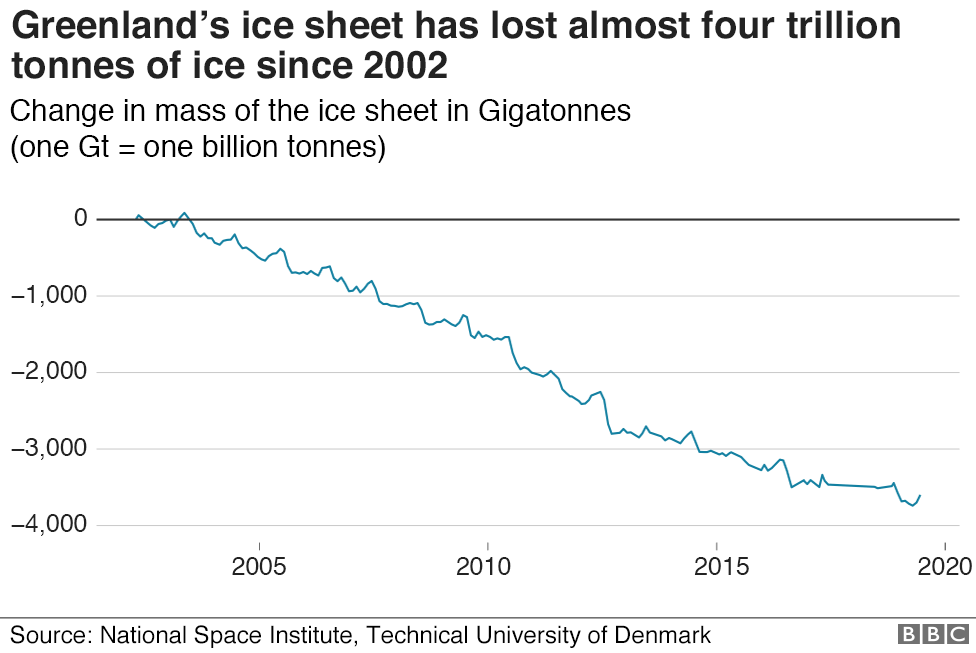
Greenland’s massive ice sheet may have melted by a record amount this year, scientists have warned.
During this year alone, it lost enough ice to raise the average global sea level by more than a millimetre.
Researchers say they’re “astounded” by the acceleration in melting and fear for the future of cities on coasts around the world.
One glacier in southern Greenland has thinned by as much as 100 metres since I last filmed on it back in 2004.
Why does Greenland matter?
Essentially because its ice sheet is seven times the area of the UK and up to 2-3km thick in places. It stores so much frozen water that if the whole thing melted, it would raise sea levels worldwide by up to 7m.
No one is suggesting that could happen for hundreds or even thousands of years but even a small increase in the rate of melting in coming decades could threaten millions of people living in low-lying areas.
Bangladesh, Florida, and eastern England are among many areas known to be particularly vulnerable to rises in sea level over the course of the century.
And although the island of Greenland is remote, stretching from the north of the Atlantic high into the Arctic, its fate could have major implications for the severity of future flooding and may even alter coastlines and force communities to move inland.
One of the scientists studying the ice sheet, Dr Jason Box of the Geological Survey of Denmark and Greenland (GEUS), says he’s unnerved by the potential dangers and that coastal planners need to “brace themselves”.
“Now that I’m starting to understand more of the consequences, it’s actually keeping me awake at night because I realise the significance of this place around the world and the livelihoods that are already affected by sea level rise,” he told me.

Dr Jason Box, Geological Survey of Denmark
How much is Greenland melting?
Until recently, the ice sheet was generally in a state of balance – the amount of snow falling in winter was roughly equal to the amount of ice melting in summer.

Last year, there was actually a gain in ice but that was relatively unusual. Over the last 30 years, decade-by-decade, Greenland has tended to shed more ice.
Either the ice melts at the surface which sends torrents of water down to the surrounding seas or huge chunks of ice break off from the margins and float away as icebergs, gradually to melt.
Read More : https://www.bbc.com/news/science-environment-49483580

